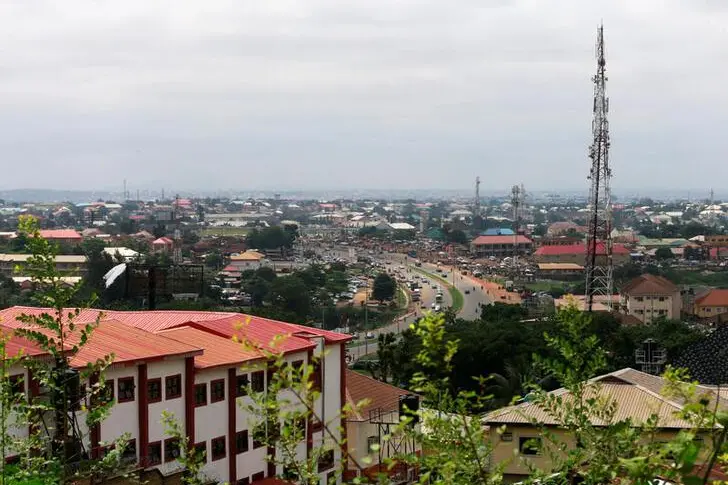PHOTO
ABUJA - Nigeria's annual inflation rose 0.72 percentage point to 16.47% in January from a month earlier, its 17th monthly rise, the statistics office said, as the effect of the coronavirus pandemic weighed on the index.
Nigeria is facing its second recession in five years, triggered by a coronavirus-induced crash in oil prices that has hammered state revenue, creating large financing needs and weakening the naira.
Inflation in Nigeria, which has been in double digits since 2016, worsened with the pandemic. Food prices rose 1.01 percentage point from the previous month to 20.57% in January, the National Bureau of Statistics (NBS) said on Tuesday.
"This rise in the food index was caused by increases in prices of bread and cereals, potatoes, yam and other tubers, meat, fruits, vegetables, fish and fats," it said in a report.
The International Monetary Fund this month urged Nigeria to phase out the central bank's financing of the government deficit to reduce inflation.
The Fund said it expects inflation to stay in double digits in the absence of monetary policy reforms, suggesting an interest rate hike might be needed if inflation worsens after the central bank cut rates twice last year to try to stimulate the economy.
Nigerian officials told the IMF that inflation could reach as high as 16% by year-end due to fuel and electricity price hikes, but that the farm harvest of late 2020 is expected to ease pressure on food prices.
(Reporting by Chijioke Ohuocha; Editing by Alex Richardson and Christopher Cushing) ((chijioke.ohuocha@thomsonreuters.com; +234 703 4180 621; Reuters Messaging: chijioke.ohuocha.thomsonreuters@reuters.net))




















